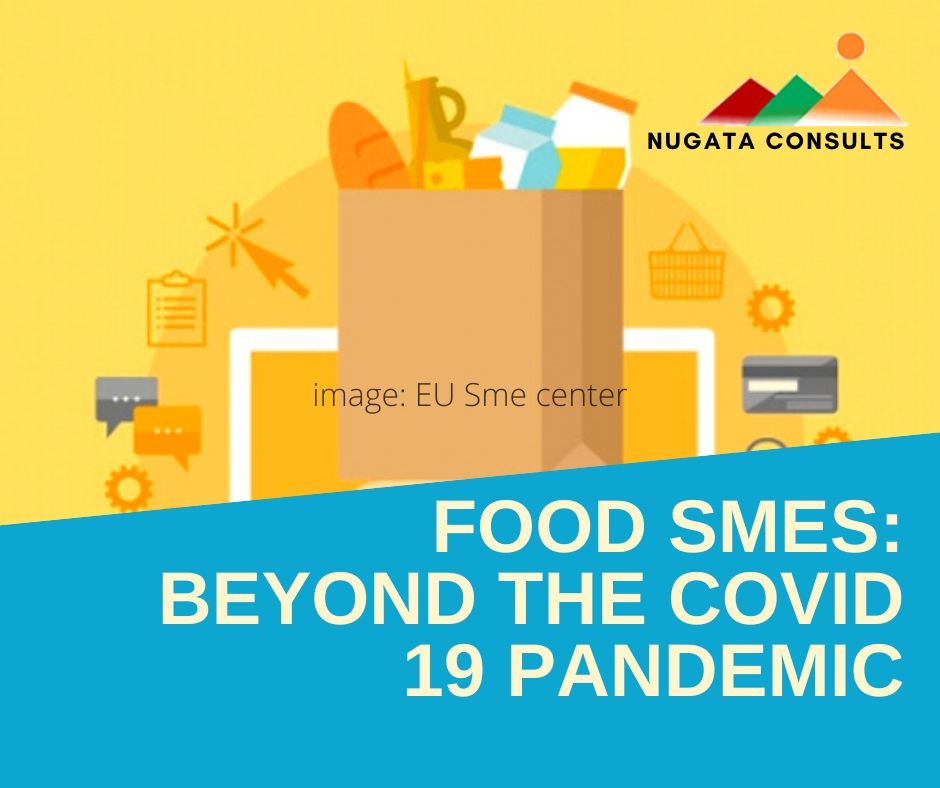
FOOD SMEs: BEYOND THE COVID 19 PANDEMIC
May 26, 2020REVIEW OF NUGATA CONSULTS VIRTUAL TRAINING ON STANDARD OPERATING PROCEDURES (SOPs)
September 14, 2020
We organized our first virtual training at Nugata Consults Limited on the 11th of July 2020. We would usually organize physical training but had to explore the virtual option as a result of the realities of a Covid-19 pandemic and post-pandemic world. Translating engagement and interaction from physical to virtual was a huge concern but it turned out to be an unnecessary one as the session went very well. The participants were very interactive and seemed very intentional about their acquisition of knowledge and growth in their career path.
The reality of the COVID-19 period is that the virtual space is the new normal and this will continue even after the pandemic hence the decision to conduct training virtually starting with ISO 22000:2018 Food Safety Management System – Requirements for any Organization in the Food Chain, Clauses 4 (Implementation) and 5 (Leadership).
There is no better time than now for food processors and agribusinesses to establish or strengthen their food safety management system (FSMS) to ensure the continued production of safe food and the sustainability of the food supply chain. Clauses 4 and 5 of ISO 22000 deal with organizational planning and the role of top management which is important for the establishment or strengthening of the food safety management system of any organization in the food chain.
The structured and systematic approach offered by an FSMS is not only crucial to food safety but is a good strategy to help turnaround the fortunes of operators in the food chain at this critical period with the challenges in meeting obligations to financial institutions.
The presentations included an overview of the ISO 22000:2018 FSMS which helps an organization to improve its overall performance in food safety. Food safety hazards can occur at any stage of the food chain. Therefore, adequate control throughout the food chain is essential. Food safety is assured through the combined efforts of all the parties in the food chain. FSMS principles combine the generally recognized key elements of interactive communication; system management; prerequisite programmes and hazard analysis and critical control point (HACCP) principles. It is applicable to all organizations in the food chain, regardless of size and complexity. ISO 22000 is developed within the ISO high-level structure (HLS) that aligns the ISO management system standards (MSS) e.g. ISO 22000 (food safety management), ISO 9001 (quality management), ISO 14001 (environmental management) using the process approach, coupled with the Plan- Do-Check- Act (PDCA) cycle and risk-based thinking. The HLS structure is a set of 10 clauses common to all ISO management system standards that make it easier to understand and use the standards. Clauses 4 and 5 are part of the planning at the organizational level of the PDCA cycle. Clause 4 (implementation) of the standard requires an Understanding of the Organization & its Context.
External and internal issues that affect the ability to achieve the intended result(s) of the FSMS are determined. Information about these external and internal issues are monitored and reviewed. It also involves understanding the needs and expectations of interested parties relevant to the FSMS. Their requirements are determined, information about them, and their relevant requirements are monitored and reviewed. Interested parties could be internal e.g. employees or external e.g. regulatory bodies, the community where the facility is located, suppliers, etc. Clause 4 also includes the scope of the FSMS. The boundaries and applicability of the FSMS are established, the products and services are indicated, and also all requirements applicable within the determined scope of the FSMS. The Scope is documented. Clause 5 states that top management shall demonstrate leadership and commitment with respect to the FSMS. They shall establish, implement and maintain a food safety policy appropriate to the purpose and context of the organization, address internal and external communication; assign the responsibility and authority for appointing the food safety team and the food safety team leader. The team leader shall manage the food safety team, organize work, ensure that the food safety team members have adequate education, training, and appropriate expertise and experience for the tasks they are assigned and report to Top Management on the suitability and effectiveness of the FSMS.
Our future training would continue with the ISO 22000:2018 clauses presented by expert trainers. Be sure to join us and acquire the requisite knowledge to drive food safety and food quality in your organizations and also prepare for your professional certification as ISO 22000 auditors.


